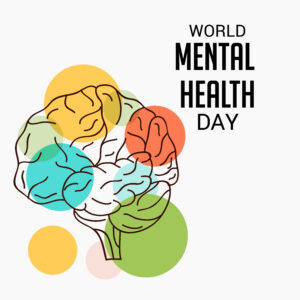From National Alcohol and Drug Addiction Recovery Month to Mental Illness Awareness Week (MIAW), significant efforts have been made of late to shatter stigma and promote mental health treatment. We can all lend a hand in encouraging others to seek help. By promoting wellness, lives can be both mended and saved. It’s vital that such efforts continue, there is much work to be done.
On numerous occasions over the years, we have written about the importance of mental health parity, mental illness treatment and the negative impact that stigma has on society. We are all affected by the well-being of our peers, demanding that everything in our power is done to inspire others to seek help. Whether someone is suffering from depression, battling addiction or both; treatment works, recovery can become a reality for the millions of afflicted individuals.
Regardless of where you live or how old you are, the odds are that you know someone affected by mental illness. Or, you may be struggling yourself. With depression affecting more than 300 million people worldwide (just one of the many forms of mental illness), the odds are high. There are over 260 million living with anxiety disorders, according to the World Health Organization (WHO). It is next to impossible not to know someone touched by mental illness.
Mental Health In The Workplace
With such a high prevalence of mental health conditions, it stands to reason that most workplaces employ people affected. Unlike other typical illnesses, people with mental illness are far less likely to share what they are going through with an employer. Conversely, many employers are not keen on the idea of hiring people with mental health conditions. Creating closed-mouthed environments, one has to omit information to get a job. Then, has to do what they can to disguise their issues to keep it.
Obviously, it’s illegal to fire someone because of mental illness. But, that doesn’t mean that openly talking about it is typically welcomed in the workplace. This code of silence makes not only employees iller, but it also has an impact on the business itself. If someone feels that they can’t talk about what they are dealing with, they are less likely to seek treatment. For fear of repercussions to their career, individuals will do whatever they can to hide what they are going through on the inside. A trend that can have grave implications for the individual in the long run.
Without treatment and continued maintenance, people living with untreated mental illness will take desperate measures. Drugs, alcohol, and self-harm are conventional vehicles of coping with untreated mental health conditions. Behaviors that often lead to addiction, overdose, and premature death. Employers who promote environments of well-being can have a hand in reversing such outcomes.
World Mental Health Day
Some of our readers may remember that we discussed the topic of mental health in the workplace back in July? An exchange involving employee and employer. Yes, talking about needing time off for mental health, mirabile dictu, and it went unbelievably well. If you didn’t get a chance to read our post, below you can see the fantastic exchange:
Employee:
Hey team, I’m taking today and tomorrow to focus on my mental health. Hopefully, I’ll be back next week refreshed and back to 100%.”
Employer:
I just wanted to personally thank you for sending e-mails like this. Every time you do, I use it as a reminder of the importance of using sick days for mental health – I can’t believe this is not standard practice at all organizations. You are an example to us all, and help cut through the stigma so we can bring our whole selves to work.”
The above discourse can serve as an inspiration to everyone. We can all promote mental health in the workplace. Mental health in the workplace is the theme of World Mental Health Day 2017 (October 10, 2017). Depression and anxiety disorders, alone, cost $1 trillion in lost productivity each year, according to WHO. The organization would like to raise awareness for mental health issues, and the impact such conditions have on society:
Employers and managers who put in place workplace initiatives to promote mental health and to support employees who have mental disorders see gains, not only in the health of their employees but also in their productivity at work. A negative working environment, on the other hand, may lead to physical and mental health problems, harmful use of substances or alcohol, absenteeism and lost productivity.”
Dual Diagnosis Therapy
AT PACE, we would like to acknowledge all the employers who treat mental health with compassion. You are a model for all employers around the globe, promoting the facts. Mental illness is treatable; kindness pays off in the end.
A significant number of the millions battling anxiety and depression also meet the criteria for addiction. When that is the case, treatment can be complicated. In such cases, long-term recovery is dependent on treating both the addiction and co-occurring mental health condition. If you are struggling with a dual diagnosis, we can help. Please contact PACE Recovery Center to begin the lifesaving process.



